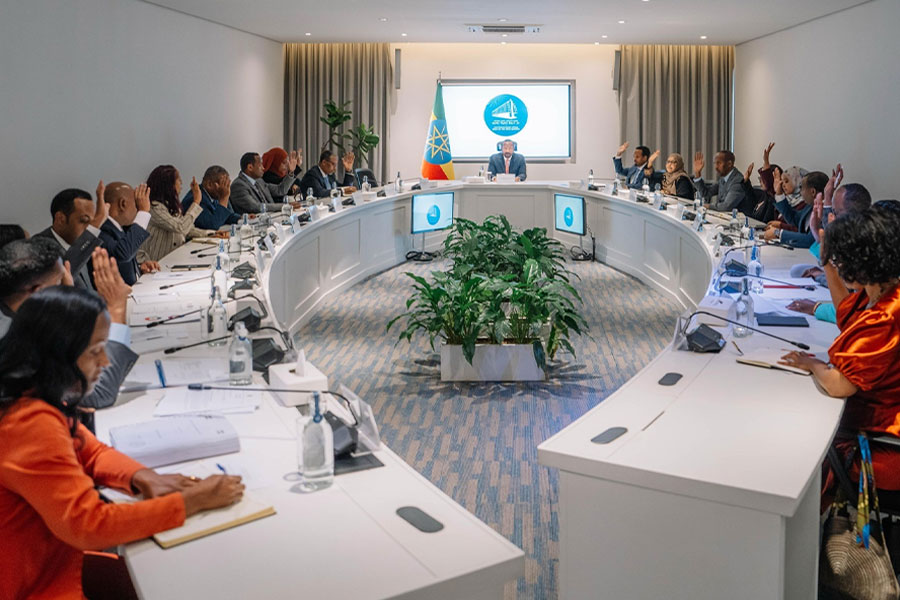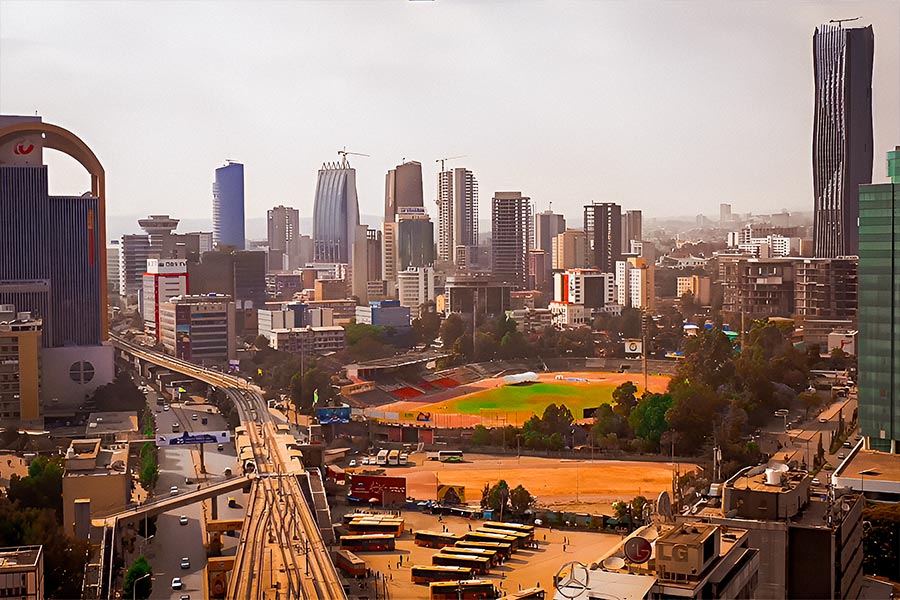
Parliament, in a conspicuous departure from a historical penchant for infrastructural investments, has approved a federal budget of 801 billion Br, signalling a potential pivot in policy direction. The allocation earmarks 203 billion Br for capital expenditure and a modest uptick of 1.9pc from the previous year's total budget. Yet, with an inflation rate of 33pc, this implies a de facto significant drop in infrastructural expenditure.
With the trimmed capital spending, no new infrastructure projects are in the pipeline. This is a far cry from the 2022/23 fiscal year when the Parliament sanctioned a 786.6 billion Br budget, a substantial 40pc boost from the preceding year. Tax revenues are expected to bankroll a hefty 60pc of the budget, while domestic borrowing and a mix of foreign aid and non-tax revenues will cover the balance.
Arega Shumete (PhD), an economist and Ethiopian Economics Association member, sees this move not as an embrace of economic liberalisation but a worrying slide towards austerity. He asserted that advanced economies could afford lean capital expenditure budgets since their critical infrastructure is mostly in place—an advantage Ethiopia cannot claim. Despite the government's emphasis on the need to cut the budget deficit, the move has sparked scepticism and criticism, particularly for its inadequate allocation for infrastructure projects, such as roads.
Prime Minister Abiy Ahmed (PhD) insisted that Ethiopia's economy is growing at an impressive clip, boasting of the highest growth rate in East Africa this year—around 6.5pc. This claim, however, glosses over the crucial difference between nominal and real GDP growth rates. The authorities tend to report economic growth using nominal GDP rates, which are favourable but potentially misleading, given that they do not account for inflation or deflation when assessing economic development.
The debate over the new budget reached a fever pitch last week in a Parliament where the Prime Minister faced calls for his resignation—the second such call within a year. Leaders of the opposition party, the National Movement of Amhara (NAMA), questioned his administrative competence, calling his party's governance a "failed leadership". They cited the soaring inflation, instability, and burgeoning poverty as evidence of his administration's shortcomings.
You can read the full story here
PUBLISHED ON
Jul 08,2023 [ VOL
24 , NO
1210]

Editorial | Jul 08,2023

Radar | Jun 07,2025

Addis Fortune | May 12,2024

Editorial | Jul 07,2024

Agenda | Dec 02,2023

Dec 22 , 2024 . By TIZITA SHEWAFERAW
Charged with transforming colossal state-owned enterprises into modern and competitiv...

Aug 18 , 2024 . By AKSAH ITALO
Although predictable Yonas Zerihun's job in the ride-hailing service is not immune to...

Jul 28 , 2024 . By TIZITA SHEWAFERAW
Unhabitual, perhaps too many, Samuel Gebreyohannes, 38, used to occasionally enjoy a couple of beers at breakfast. However, he recently swit...

Jul 13 , 2024 . By AKSAH ITALO
Investors who rely on tractors, trucks, and field vehicles for commuting, transporting commodities, and f...

Nov 1 , 2025
The National Bank of Ethiopia (NBE) issued a statement two weeks ago that appeared to...

Oct 25 , 2025
The regulatory machinery is on overdrive. In only two years, no fewer than 35 new pro...

Oct 18 , 2025
The political establishment, notably the ruling party and its top brass, has become p...

Oct 11 , 2025
Ladislas Farago, a roving Associated Press (AP) correspondent, arrived in Ethiopia in...